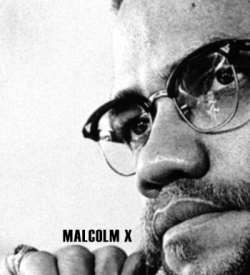It was a cool joint. Decent exploration of the group's formation and demise with some stuff that made you ask questions about the nature of friendship, love and black maleness. I would recommend even if you weren't a big Tribe fan, which I wasn't, because it's cool even to newbies.
As I was leaving the Tribe movie, another joint was letting out. Yep, "The Help" the famously infamous movie that tells the story of the Civil Rights era in Mississippi through the eyes of a young white woman and the black domestic help she knew. The movie, which of course is based on a novel by the same name, has been lauded by some critics and lampooned by others, and it's been steadily raking in the money.
I have no desire to see The Help or read the novel. Some folks would say my unwillingness to consume the work makes any critique I provide invalid. I say they can stop reading now.
See, I don't need to read the book or see the movie to know the story. As soon as I learned that it was the story of black domestics told through the eyes of a young white woman who cared about them, I knew the story. It was Blood Diamonds in Jackson. Or Bagger Vance without the golf clubs. Dangerous Minds without high school. Another tale of how kindness and love shown to white folks, or shown by white folks, makes the world a better place. The coloreds are just the ever changing set pieces.
Some folks may find that cynical and simplistic. After all, I didn't see the movie, what do I know? I know that the director said this in a recent interview:
The scene where Viola Davis sitting on a toilet in a garage in 108 degrees, and then a white woman comes out and tells her to hurry up was visually brutal. To me that's worst than seeing a lynching. It just is."
That came after the director said that this wasn't the story of victims, and that it wasn't supposed to be historical, just a story. That bothers me. First, because black people were victims. Sure, we triumphed and fought, but we were victims. A terrible, terrible wrong was done to black people and we were victims. Many of us are still feeling the effects of being victims. To tell a story where you set out to avoid victims, or where you consider victimhood to be a sign of weakness, is the first sign that something is wrong.
Second, if you're telling a story, it should be rooted in truth. It doesn't have to be a rote retelling of the facts, but it needs to be rooted in accuracy or truth or else you're not telling a story, you're creating propaganda. That's what this movie is, in fact. It's racial propaganda seeking to absolve white people of the squeamish feelings they don't want to have. It helps justify their decisions not to think about plantation tours that don't feature slaves, or Nana and Paw Paw's role in facilitating Jim Crow. These false portrayals of the past are a soothing balm to their barely chafed spirits. And let's not even discuss how these tales distort the historical record since most Americans lack the knowledge base to understand that what they're watching is in no way true.
Lastly, there is no way a personal act of humiliation is worse than a lynching. NO WAY. To even make that comment shows a shocking, SHOCKING lack of understanding of what a lynching was. It wasn't just being strung up and forced to die in a way so brutal you were guaranteed to void your bowels. No, often it meant being tortured, castrated, jeered and mocked. It meant being denied due process in a land that you helped build. Far too often it meant paying the ultimate sacrifice just for daring to be human. There is no way being told to hurry up off the toilet could EVER compare and I doubt the black people of that time would have agreed with that sentiment.
The director, along with the author, both talk in glowing terms about the black women in their lives who helped mold them and shape them. They helped them become adults. But, these white folks refuse to understand that these black maids were not their family. They were their employees. They were in a subordinate position largely because of the racist economic system in place at the time, and they were forced to either find solace and joy in the crumbs of life offered to them, or go mad. These women may have genuinely developed feelings for their white charges, but they always, ALWAYS understood, at least the smart ones did, that they were employees. And when they were pawed at, humiliated and degraded, they continued to work because like all employees they needed the job.
Those are the types of salient facts that make a story real. But, real don't sell movie tickets. Nope, not at all.
Share




No comments:
Post a Comment